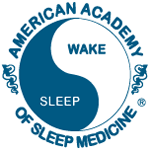 A new pilot study shows a treatment approach that combines cognitive-behavioral therapy with image rehearsal can help shell-shocked veterans find more peaceful sleep. PTSD affects nearly 1 in 4 veterans who served in either Afghanistan or Iraq. Once they return home, as many as 91 percent of veterans report having trouble falling asleep or staying asleep.
A new pilot study shows a treatment approach that combines cognitive-behavioral therapy with image rehearsal can help shell-shocked veterans find more peaceful sleep. PTSD affects nearly 1 in 4 veterans who served in either Afghanistan or Iraq. Once they return home, as many as 91 percent of veterans report having trouble falling asleep or staying asleep.The study involved a group of 22 veterans with sleep problems related to symptoms of post-traumatic stress disorder (PTSD). Half of the veterans received a combination of cognitive-behavioral for insomnia and image rehearsal therapy for PTSD-related nightmares. The control group was assigned prescription drugs including sleeping pills, antidepressants and other mood stabilizers. Both treatments lasted about twelve weeks.
Short term results show the group who received CBT and image rehearsal therapy saw significant improvements in sleep and PTSD symptoms. Due to the sample size and the nature of the pilot study, further research is needed to demonstrate the effectiveness of the approach.
The study was published in the February issue of Journal of Clinical Sleep Medicine, the official journal of the American Academy of Sleep Medicine.
The approach used in the study combines two commonly used treatments for related conditions. Cognitive behavioral therapy is considered the front line treatment for long-term insomnia. And behavioral sleep specialists use image rehearsal therapy to treat nightmare disorder. Both sleep disorders bare similarities to the sleep-related symptoms of PTSD.
Another recent study proposed a more radical treatment for PTSD - sleep avoidance after a traumatic event. The authors theorize the trauma won’t go into memory if you don’t sleep. Sleep after all plays an important role in the development of memories.
Learn more about sleep and memory.










